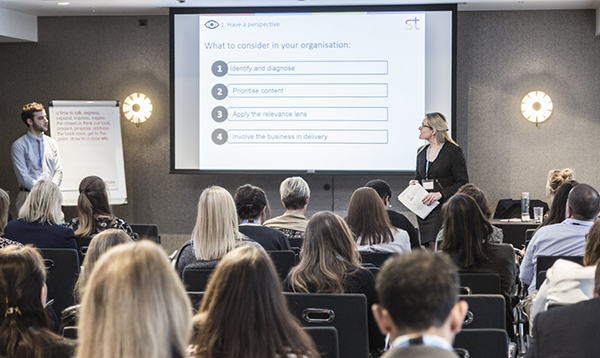In advance of next month’s ISE Student Development Conference, Tristram Hooley, our Chief Research Officer, considers the definition of ‘skills’ and how a new approach is emerging, providing thought-provoking advice for those involved in the development of young talent.
When businesses hire entry-level staff they are triggering a life changing transition for the young person who has been employed. For the employer this is (yet) another new employee who you are trying to get some useful work out of. But, for the young person, they are going through probably the biggest change in their life. That of moving for the first time from education into work.
Our Development Survey 2018 – an annual survey that launches at our conference each year – focused on the skills and knowledge that employers wanted and compared this to the skills and knowledge that they found their new student hires actually had. For example, only 12% of employers found that graduates were good at dealing with conflict and only 17% found that they could negotiate effectively. Conversely, 87% reported that graduates were good at teamwork and 73% that they could solve problems. To address these limitations in graduates’ skills employers were offering an average of 11 days of training.
Defining skills
However, when I talk to employers about their student employees, the topic of skills comes up surprisingly infrequently. Employers talk about ‘attitude’, ‘organisational fit’, ‘resilience’ and ‘proactivity’. These kinds of things are difficult to define, but they aren’t ‘skills’ in the sense that we usually use that word.
Researchers who work in the area of graduate transitions have also started to move beyond thinking about skills as being the ‘only thing that matters’. Kirsty Finn talks about the importance of thinking about graduates relationships with their families, friends and colleagues as key to their ability to make successful transitions. Michael Tomlinson and his colleagues talk about the social, psychological and cultural resources (what he calls ‘capital’) that graduates bring to a new job. While Gemma Webster and her colleagues focus on the idea of identity, arguing that becoming a professional is not just a matter of learning some new skills, but rather of giving up your identity as a student and adopting a new identity as a worker or professional.
A new approach to development
This kind of academic research can suggest some important new approaches for professionals who are involved in supporting young people to develop and become successful and productive employees.
It is not enough to focus on what your new employees know or what they can do. You also need to think about who they are, what they bring to your organisation and what they might lack beyond skills and knowledge. You should also consider what relationships are important to them and how you can support them to form new relationships that will be supportive in their new roles as workers. And, perhaps most importantly, you should consider what you could do to aid them to develop their identity as a professional within your organisation whilst maintaining a sense of integrity and authenticity.
Share and talk about the issues
ISE Student Development Conference gives us an opportunity to talk about all of these issues. To ask questions like whether you are helping new hires to develop resilience or subjecting them to endurance tests? Whether the dynamics of developing new hires vary in important ways between graduate and apprentice? Whether new technologies can support these transitions? And to ask whether your work is all done once students leave your development programme?
I look forward to seeing you all at the conference to continue these debates.


0 Comments